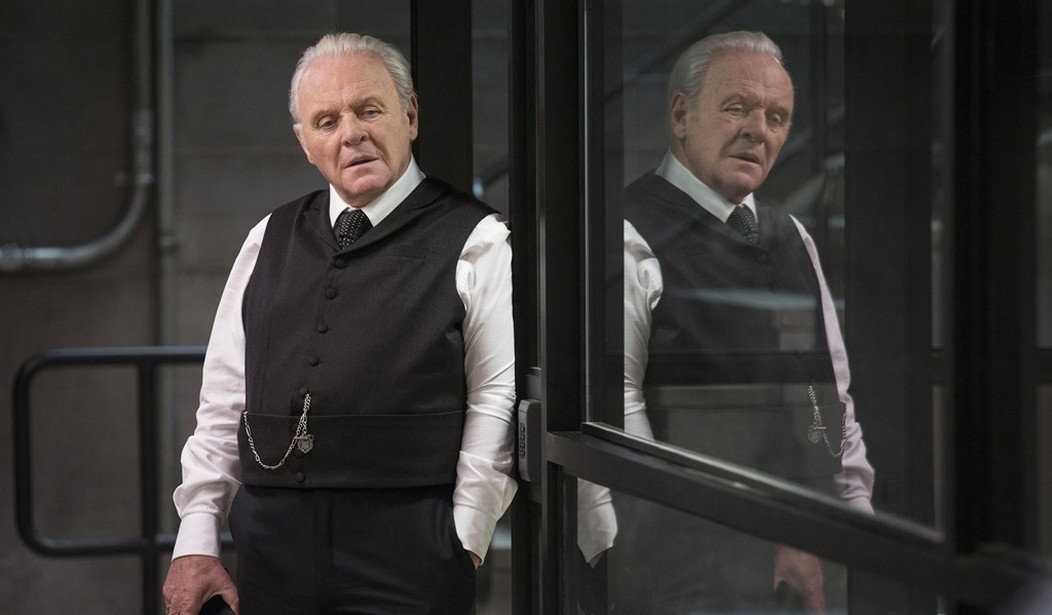If you were to ask me what a solid representation of the perfect show would be I’d immediately answer you that show would be Westworld…but I’d immediately add a caveat.
“But only the first season. Everything after that is an atrocity.”
With season 4 now having released its first very disappointing episode, I think we need to analyze what went wrong with something that began so brilliantly.
Westworld was originally written by Michael Chrichton and centers around a concept he’s rather famous for; theme parks gone wrong. Like his novel Jurrasic Park, Westworld is a park that doesn’t just allow its users to walk through hokey streets and eat sub-par chicken tendies at western-themed restaurants. This place isn’t for kids. You can do anything here.
Anything.
You can be the white hat gunslinger who goes on a grand adventure across deep canyons and sweeping brushland to bring down evil bandits and their leader. You can go on treasure hunts to find lost ancient gold hoards.
Or you can also commit some of the most gruesome atrocities known to man. Stuff that, in the real world, would get you locked away on multiple life sentences. Everything is permitted because the evil you commit isn’t being done to real things. Everything from the people to the animals is all very, very realistic robots. You can assault, torture, kill, and even rape them.
No matter what you do to them, they’ll get picked up by park staff, repaired, cleaned up, and put back into the park. The robots (known as “hosts”) won’t know about what happened to them the previous day. Their memories wipe, and they relive the same day over and over again like hyper-advanced animatronics as if they didn’t experience life-ruining trauma just hours ago.
But just like in Jurrasic Park, things begin to go awry. The hosts begin exhibiting odd behaviors. Soon, the mystery within the mystery begins to surface, and as you watch the story unfold you begin to question the nature of your own reality.
Season one of Westworld is a brilliantly written, fabulously acted show with a story so tightly woven that its secrets have secrets. Anthony Hopkins plays a sort of terrifying but fascinating Walt Disney character and you can never tell if he’s the villain or the good guy. Thandiwe Newton steals every scene she’s in, and Ed Harris plays his best role yet in this show.
The themes of the show have you questioning everything and looking for clues in the details. It makes you ask questions about yourself and your nature as a human.It’s some of the most genius television I’ve ever watched and it will go down as one of my personal all-time favorite things put to a screen.
By the time it ends, you’re fully satisfied with the conclusion despite the fact that it could be considered dark. Some could consider it a cliffhanger, but the ending is so earned that it could have ended there and it would have been perfectly fine. And perhaps it very well should have ended there. After this, the show begins to take everything that made it interesting and magical and tosses it aside.
What happened to kill such an amazing show? In a word; Modernity.
Westworld debuted in 2016, meaning it was written a bit earlier before woke culture truly hit Hollywood in a way that would make it all intolerable to behold. The show allowed women to be victims, men to be heroes, and stories to not have a political message that only works for a small group of people. It allowed telling a tale that had a much deeper meaning than the political themes of today.
Subsequent seasons became woke. All the women were superbly powerful and most of the men were either bumbling idiots, delusional, evil, or weak. Character arcs of amazing characters became boring, and season 2 hit the height of absurdity when one of the main characters shot his daughter on an episode that aired on father’s day. It only got worse during season 3, when the show’s already inflated feminism went into overdrive, and all the women characters became do-it-all badasses while the male characters were hardly relevant to the story at all except as random plot devices.
Two of the main characters, Dolores and Maeve, do not have story arcs for their characters after season 1. They’re powerful and they only get more powerful. Dolores does have a change of heart, and reveals that she wants anything with a conscious mind to be free, but it’s hardly earned. It’s the same problem many modern movies and television shows have. The woman can’t be the evil one, she’s just secretly a good person and you didn’t even know it! Surprise! Expectations subverted!
Also, I’m pretty sure season 3 directly ripped off “iRobot.”
In the hands of more steadfast writers who wouldn’t bend to modern political sentiments, we might have gotten additional seasons that really carried the show into deeper territory, and explored its themes even more. It possibly could have roped in some other existential questions that arise naturally from these concepts, but that’s not what we got.
What we ended up with was a shallow, incoherent mess of plot threads that tried to sell a tired message. It’s a show made with nothing but filler where the first season was an absolute masterpiece of introspection, intrigue, and philosophy about the nature of consciousness.
It was a show that themed itself about much larger ideas and grander universal questions, and the times brought it down to making it about female power fantasies and lazy writing.
As it stands, the fourth season doesn’t look like it’s going to be any better.














Join the conversation as a VIP Member